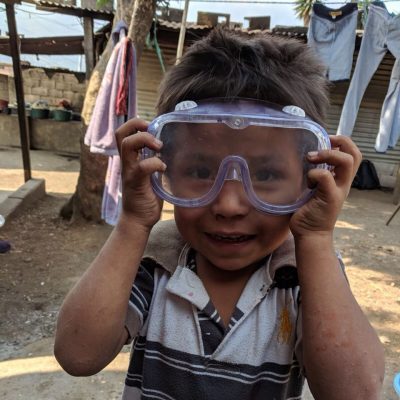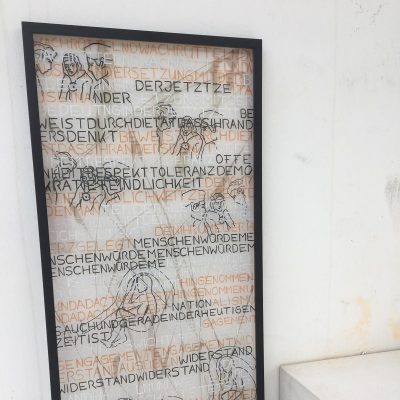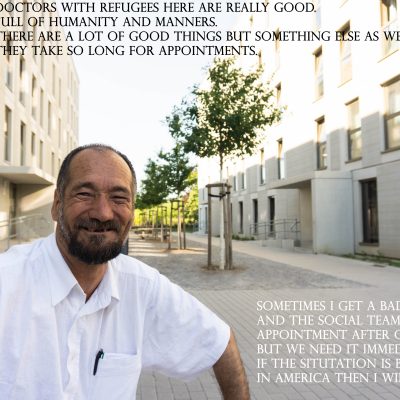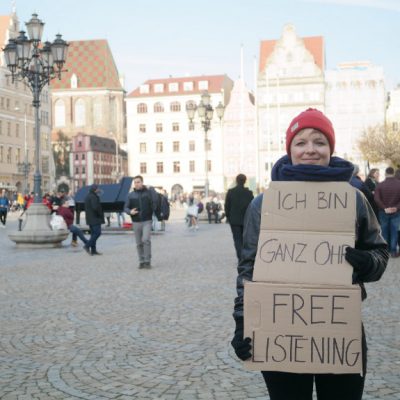Article
Senior Fellow Vaclav Masek was born and raised in a working-class neighborhood in the heart of Guatemala City. As an only child in a single-parent household, he was constantly aware of the country’s divided society resulting in crime and violence, in human rights violations, and in the lack of opportunities available to the common individual. And while opportunity was scarce and socioeconomic growth stagnant, government corruption soared. In this context, Vaclav realized a project to support ten families to gain access to clean drinking water and cooking facilities.

As of now, there are 3.1 million households in Guatemala using open fires as a way of cooking their food. It is estimated that this situation causes the death of about 5,000 women and children every year. As a corollary, respiratory illnesses are the primary cause of death in infants aged 0-5 in Guatemala. This has also has a significant impact on the pockets of wood users, as it is estimated that 50% of their salary is spent in covering their wood energy needs, preventing them from saving their funds to invest it in more sustainable ways. Open fire cooking also results in quicker deforestation, with some regions in Mexico and Central America being at the point of no return with their forests are gone.
A multi-ethnic country with a cultural legacy dating back millennia, Guatemala is one of the most unequal countries in Latin America. While two thirds of the overall population live on less than US$ 2 per day according to World Bank statistics, poverty affects Mayan indigenous people disproportionately: around 80% experience serious deficiencies in food security, nutrition, health and education.
Vaclav grew up and became aware of the hardships in his surroundings. He therefore started working with an NGO called Helps International since he was 16 and has volunteered with them every year since. For his Action Project, Vaclav organized a large volunteering program, which culminated with a two-day trip to the village of Jocotenango, two hours outside of Guatemala City. 10 families—around 40 people—received an ecological stove and a water-purifying filter. They now can breathe clean air (“aire limpio”) and drink clean water (“agua limpia”).

Women gained the equivalent of two days a week in time saved from gathering wood, allowing them time for involvement in social and economic activities.
The smoke in the newly built stoves does not penetrate the inside of the household, thus minimizing the risk of carbon monoxide intoxication. It also reduces wood consumption by 60%-70%, resulting in a major economic benefit and a better quality of life for the beneficiary families. The water filter provides 10 gallons of safe drinking water in 24 hours. The filtering systems are manufactured from food grade polyethylene and are hygienic, durable, and easy to clean. This ensures 100% removal of parasites such as guinea worm and giardia, and 99.99% removal of pathogenic bacteria such as cholera, E.coli and shigella.
Upon returning from the Humanity in Action Fellowship in Warsaw, Vaclav conducted a series of presentations at his alma mater, New York University, to raise awareness to the situation of Guatemalans, and the negative effects of open fire cooking and drinking unfiltered water. As a result, Vaclav was able to secure $2,500 in funding, which were sent to Helps International in order to acquire 10 ecological stove and water-purifying filter sets.
Vaclav recalls the fundraising to be the most complicated part of the project.
“The world has so many other social justice issues that take the center stage when it comes to public attention, so shifting that focus towards one’s own cause tends to take time and effort. After several failed attempts at gaining funds from a multiplicity of sources, I realized that the most effective way to create a linkage to a potential funder is by appealing to one’s personal connection to the project.”
The project was executed in cooperation with HELPS International, a non-profit corporation based in Dallas founded in 1984, who aided the project’s implementation by conducting a socioeconomic survey in communities in need in order to find potential beneficiaries. They contributed with an on-site technician to facilitate the installation of the ecological stoves and the water filters, since some of assembling process requires using power tools.
Given the transformative nature of the project, Vaclav expects to continue his involvement in the future.




